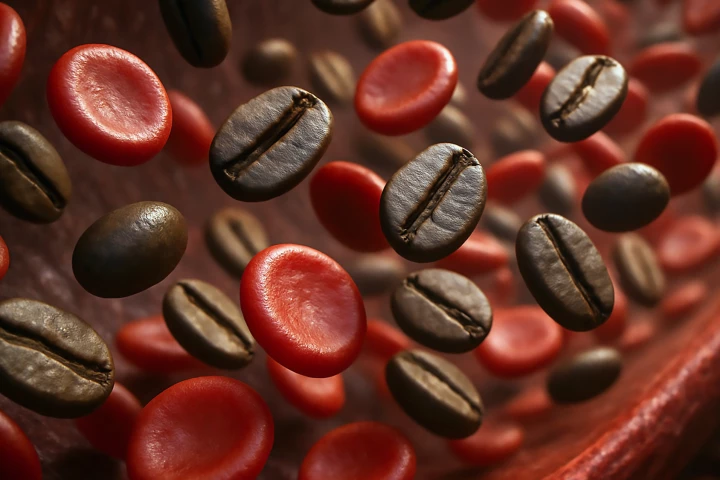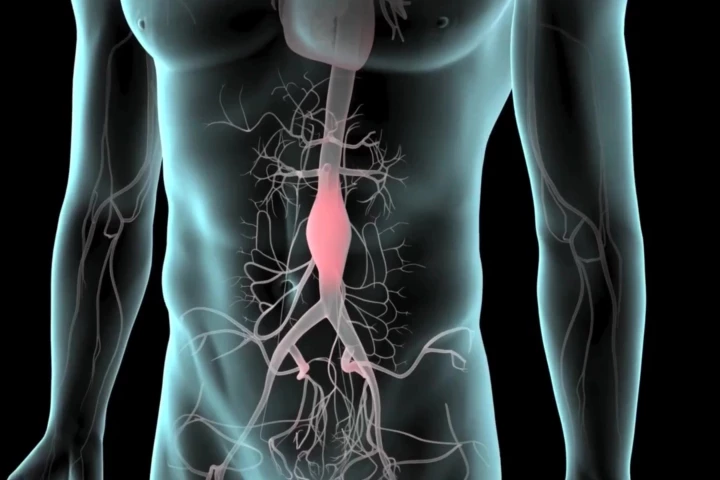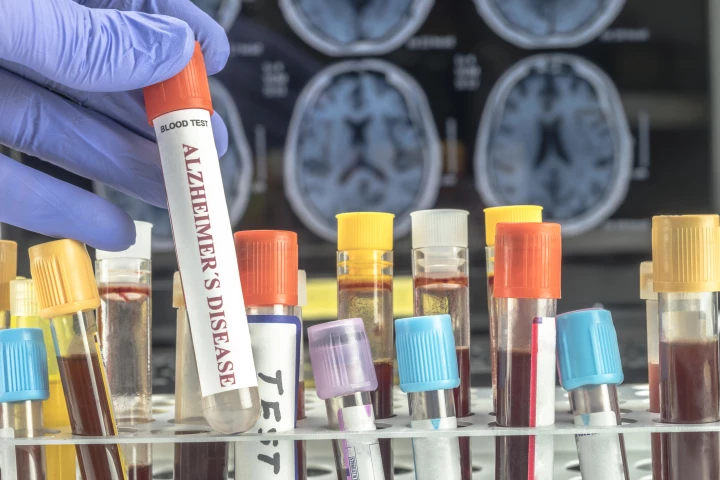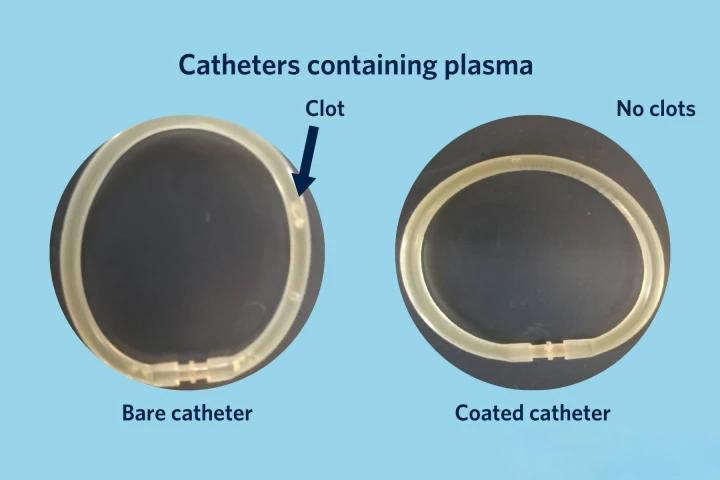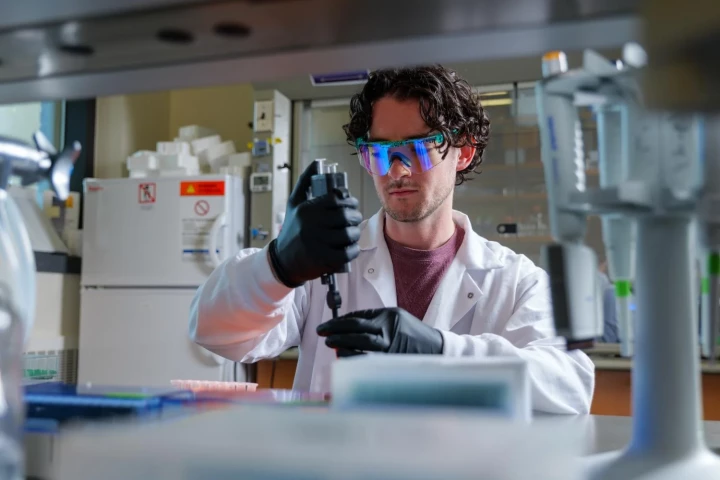Blood
-
Researchers have developed a spray-on powder that turns into a wound-conforming gel when it comes in contact with blood. The breakthrough has the possibility of dramatically improving wound care in combat and other life-threatening situations.
-
Researchers believe they have developed the first blood test to diagnose chronic fatigue syndrome, or myalgic encephalomyelitis, and it has the potential to be a game-changer for millions around the globe suffering with the debilitation condition.
-
Your morning coffee might do more than wake you up – it could weaken donated blood. A large new study shows caffeine lowers red blood cell quality, making transfusions less effective, especially in patients who need them most.
-
Scientists have implicated a gut byproduct from meat and other animal foods in the growth of deadly abdominal aortic aneurysms. Often symptomless, as it develops, a ruptured aneurysm has a mortality rate above 80%. And currently, treatment is limited.
-
From vampire legends to lab-grown tissue, the idea that young blood can reverse aging is no longer pure myth. A new study shows that proteins secreted by bone marrow cells, triggered by young blood, can rejuvenate aging skin in the lab.
-
In a groundbreaking development, French scientists have identified the world’s rarest blood group, known as Gwada-negative. It's a blood group so rare that only one woman in the world is known to have it.
-
Diagnosing celiac disease often means exposure to the thing that makes you sick, which can be debilitating. It may soon be simpler and pain-free, with a first-of-a-kind test that can detect and gauge the severity of the disease in a test tube instead.
-
The first blood test for Alzheimer's disease detection has been green-lit by the US Food and Drug Administration, providing a simpler, quicker and less invasive method of diagnosis and speedier intervention. It's a milestone moment for medical science.
-
Scientists at Oregon Health and Science University (OHSU) have developed a new blood test for pancreatic cancer, one of the most deadly forms of the disease. Tests showed up to 85% accuracy in detection, even in early stages.
-
The body has a remarkable ability to heal injuries, but it has its limits. Now scientists have developed a way to improve on the natural process, making implants created from a patient’s own blood to regenerate injuries, even repairing bone.
-
When a patient's blood flows through catheters, stents or other medical devices, there's always a risk that harmful clots may form. An experimental new bio-inspired coating could keep that from happening, without the use of blood-thinning drugs.
-
Nobody enjoys giving blood samples, but it’s a necessary part of doctor visits. Soon we might not have to, thanks to a new device that can isolate biomarkers for different diseases using sound waves, from a single drop of blood, in around an hour.
Load More


